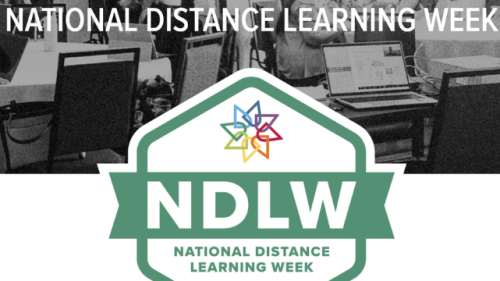Geographic information science (GISc) is a broadly applicable degree that can be used in many fields around the world, including healthcare, climatology, urban development, national parks and more.1 Working in GISc could take you to places as different as a laboratory or the deep wilderness. For example, you might use the skills you have learned to protect the environment, study volcanic activity in other areas of the world, or support the homeless population in your city.2 If you have an analytical mind and are good at visualizing information, you can use GISc technology to tell stories that help others and better understand and serve the world around you in countless different ways.
With so many different areas to choose from, how do you decide which job in geographic information science is best for you? Although your GISc career should be personally fulfilling, it’s also important to consider the salary and long-term career prospects of your career choice.
We’ve weighed the pros and cons of different jobs in geographic information science to come up with our top career choices, based on salary, job growth and application of education.
THE TOP THREE GEOGRAPHIC INFORMATION SCIENCE JOBS: OUR PICKS
1: GEOGRAPHER3
Although there are many different types of geographers (such as physical geographers or human geographers), what all of these professions have in common is they utilize technology to gather, examine and analyze geographic data to better understand a region. One benefit of working as a geographer is you will likely need to complete fieldwork, which could mean international travel and exploring many different locations.4
Among the highest geographic information science salaries, the median wage for geographers in 2018 was $80,300, with some positions offering more than $100,000 a year.5 The highest-paid geographers tend to work for the federal government in positions that often require a master’s in GISc. This is also a highly competitive field, so advanced education and specialized experience can help make your résumé stand out.
2: URBAN PLANNER6
Urban planners develop land use plans that guide future development and population growth in a particular region or community. While this can involve developing new areas, it often addresses existing communities that need revitalization or management as they grow and change. This highly specialized career path typically requires a master’s degree from an accredited program, and hands-on experience from entry-level work or internships can make you a more competitive candidate.7 Working as an urban planner allows you to make a difference in the lives of many people, but it may also mean long hours so that you can meet with the different groups your work affects.
The median wage for urban planners in 2018 was $73,050, but those who work for the federal government earn a median wage of $96,420. Many urban planners are government employees at the local, state or federal levels, but they may also work directly with architectural, engineering or scientific consulting firms.
3: CARTOGRAPHER8
Put simply, cartographers are mapmakers. They use information provided through land surveys and technological systems to develop user-friendly maps that are both accurate and easy to understand. These maps may not necessarily be for laypeople; a cartographer may work for the government and include information about the population size and demographics of a particular area, as well as its physical characteristics. Cartographers often complete their work in an office, but they may conduct onsite visits to gain firsthand knowledge of the areas being mapped, sometimes to particularly remote locations.
The median wage for cartographers in 2018 was $64,430.9 Although this category of geographic information science jobs does not necessarily earn as high a salary as a geographer or an urban planner, it is an extremely fast-growing, high-demand career, with a 15 percent growth rate in the field between 2018–2028, compared to the national average of 5 percent for all occupations.10
No matter what geographic information science job you want to pursue, Kent State University’s online Master of Geographic Information Science (GISc) offers a solid education and the skills and expertise you need to advance in your career. You’ll be prepared to work in local, state and federal government agencies, private sector consulting, healthcare and nonprofit organizations. It will also give you the flexibility to choose a concentration that will strengthen your résumé and your understanding of GISc beyond the technology you use.
Sources:
- Retrieved on January 7, 2020, from esri.com/en-us/what-is-gis/careers
- Retrieved on January 7, 2020, from esri.com/en-us/what-is-gis/showcase
- Retrieved on January 7, 2020, from cnbc.com/2019/04/18/15-high-paying-jobs-for-people-who-love-to-be-outside.html
- Retrieved on January 7, 2020, from www.bls.gov/ooh/life-physical-and-social-science/geographers.htm
- Retrieved on January 7, 2020, from www.bls.gov/ooh/life-physical-and-social-science/geographers.htm#tab-5
- Retrieved on January 7, 2020, from www.bls.gov/ooh/life-physical-and-social-science/urban-and-regional-planners.htm#tab-1
- Retrieved on January 7, 2020, from www.bls.gov/ooh/life-physical-and-social-science/urban-and-regional-planners.htm#tab-4
- Retrieved on January 7, 2020, from www.bls.gov/ooh/architecture-and-engineering/cartographers-and-photogrammetrists.htm#tab-1
- Retrieved on January 7, 2020, from www.bls.gov/ooh/architecture-and-engineering/cartographers-and-photogrammetrists.htm#tab-5
- Retrieved on January 7, 2020, from www.bls.gov/ooh/architecture-and-engineering/cartographers-and-photogrammetrists.htm#tab-6






